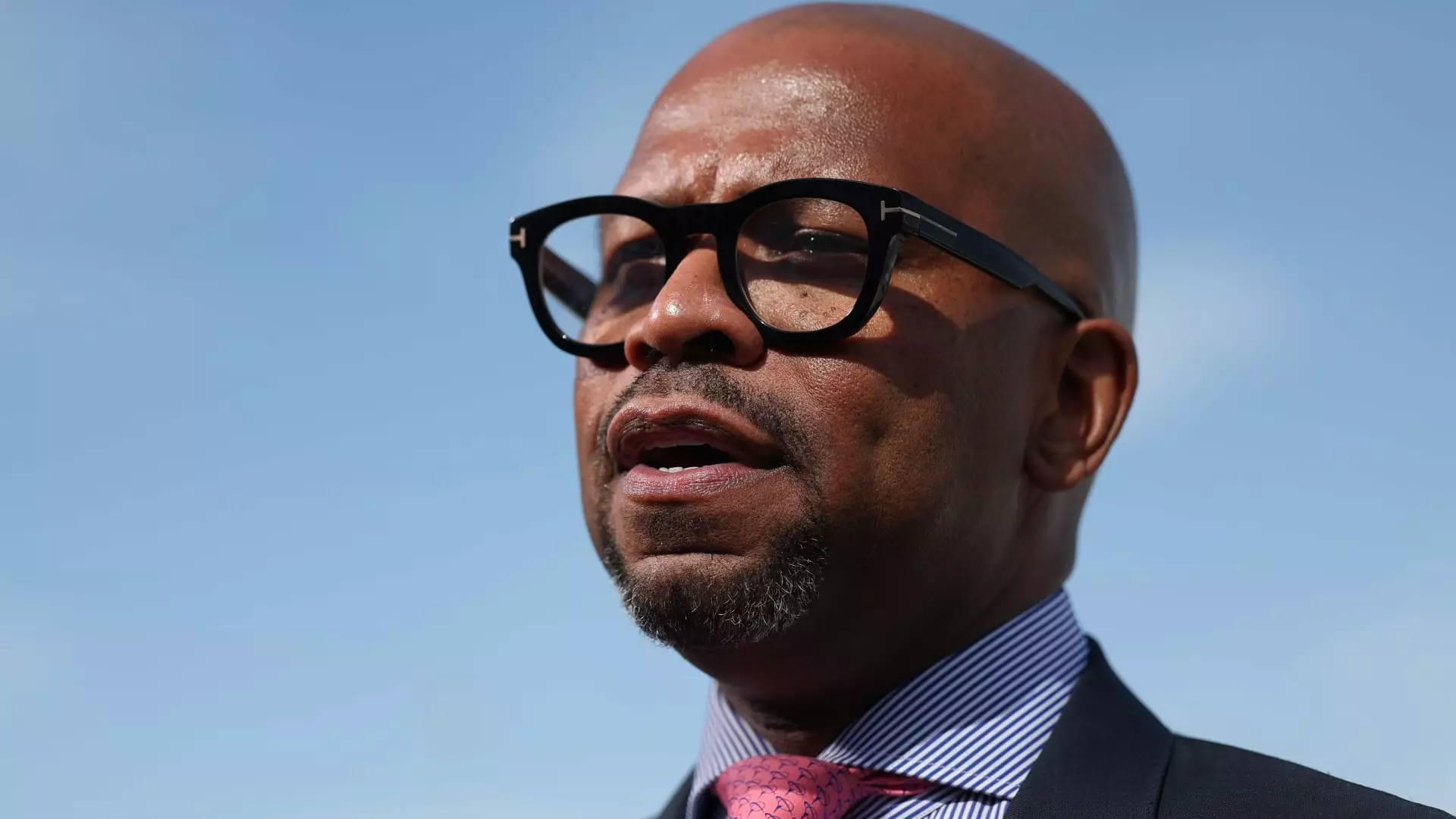The abrupt departure of Ted Colbert, head of Boeing’s defense unit, underscores a pivotal moment for the aerospace giant as it navigates a challenging landscape. Announced by CEO Kelly Ortberg shortly after his appointment, this leadership switch not only reflects Colbert’s significant 15-year tenure but also reveals Ortberg’s commitment to steering the company towards greater accountability and performance excellence. In the memo to staff, Ortberg emphasized the critical need to restore trust among customers—an indication of the deep-seated challenges gripping Boeing at this moment in time.
Boeing’s defense, space, and security segment remains a linchpin of the company’s overall revenue, contributing approximately 40% in just the first half of the year. However, this crucial unit is not without its troubles. Production hiccups and cost overruns have plagued several projects, particularly the new 747s destined to become Air Force One. These ongoing issues have not only jeopardized contract timelines but have also risked tarnishing the reputation of a company tasked with ensuring the safety and efficacy of defense systems worldwide. Ortberg’s words reflect an urgent need for the company to address these shortcomings and reaffirm its commitment to meeting, if not exceeding, the expectations of its clients.
In the interim, Steve Parker, Boeing’s Chief Operating Officer, will step in to oversee the defense unit. This decision can be viewed as a strategic move to maintain stability amid the uncertainties that come with executive changes. Parker’s familiarity with the operations could play a crucial role in managing the transition period. The leadership gap left by Colbert’s exit enhances the urgency for Boeing to secure a new executive who will embody the company’s renewed focus on performance and accountability. The search for this individual will likely be closely scrutinized, as stakeholders will want assurances that the next leader will be equipped to tackle the ongoing challenges head-on.
Meanwhile, the aerospace division faces its set of trials. The recent failure of Boeing’s Starliner mission, which returned to Earth without the NASA astronauts it was designed to carry, has raised eyebrows within the industry. Such setbacks not only impact contractual obligations with NASA but also serve as a stark reminder that Boeing must innovate and execute better in the highly competitive space exploration arena. As the spotlight turns to future missions, both NASA and Boeing are undoubtedly weighing their options, with heightened attention on SpaceX’s increasingly successful crewed missions.
A Call for Immediate Action
As Boeing embarks on this new chapter, the leadership shake-up may herald the dawn of a more proactive approach in addressing operational inefficiencies and restoring client confidence. Ortberg’s emphasis on collaboration signals an intent to foster a culture of resilience within the organization. For Boeing, the road ahead is fraught with obstacles, yet with decisive leadership changes and a recommitment to operational excellence, the company may yet find it within itself to rise to the occasion and reclaim its status as an aerospace industry leader.


Napsat komentář